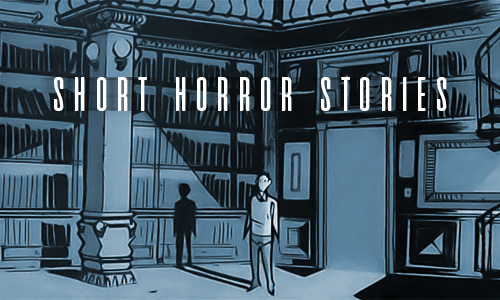Sohmygodness - Be Curious































More Posts from Sohmygodness and Others

This is a compiled list of some of my favorite pieces of short horror fiction, ranging from classics to modern-day horror, and includes links to where the full story can be read for free. Please be aware that any of these stories may contain subject matter you find disturbing, offensive, or otherwise distressing. Exercise caution when reading. Image art is from Scarecrow: Year One.
PSYCHOLOGICAL: tense, dread-inducing horror that preys upon the human psyche and aims to frighten on a mental or emotional level.
“The Frolic” by Thomas Ligotti, 1989
“Button, Button” by Richard Matheson, 1970
“89.1 FM” by Jimmy Juliano, 2015
“The Yellow Wallpaper” by Charlotte Perkins Gilman, 1892
“Death at 421 Stockholm Street“ by C.K. Walker, 2016
“The Ones Who Walk Away from Omelas” by Ursula K. Le Guin, 1973
“An Empty Prison” by Matt Dymerski, 2018
“A Suspicious Gift” by Algernon Blackwood, 1906
CURSED: stories concerning characters afflicted with a curse, either by procuring a plagued object or as punishment for their own nefarious actions.
“How Spoilers Bleed” by Clive Barker, 1991
“A Warning to the Curious” by M.R. James, 1925
“each thing i show you is a piece of my death” by Stephen J. Barringer and Gemma Files, 2010
“The Road Virus Heads North” by Stephen King, 1999
“Ring Once for Death” by Robert Arthur, 1954
“The Mary Hillenbrand Cassette“ by Jimmy Juliano, 2016
“The Monkey’s Paw” by W.W. Jacobs, 1902
MONSTERS: tales of ghouls, creeps, and everything in between.
“The Curse of Yig” by H.P. Lovecraft and Zealia Bishop, 1929
“The Oddkids” by S.M. Piper, 2015
“Nightmare at 20,000 Feet” by Richard Matheson
“The Graveyard Rats” by Henry Kuttner, 1936
“Tall Man” by C.K. Walker, 2016
“The Quest for Blank Claveringi“ by Patricia Highsmith, 1967
“The Showers” by Dylan Sindelar, 2012
CLASSICS: terrifying fiction written by innovators of literary horror.
“The Tell-Tale Heart” by Edgar Allan Poe, 1843
“The Interlopers” by Saki, 1919
“The Statement of Randolph Carter“ by H.P. Lovecraft, 1920
“The Damned Thing” by Ambrose Pierce, 1893
“The Legend of Sleepy Hollow” by Washington Irving, 1820
“August Heat” by W.F. Harvey, 1910
“The Black Cat” by Edgar Allan Poe, 1843
SUPERNATURAL: stories varying from spooky to sober, featuring lurking specters, wandering souls, and those haunted by ghosts and grief.
“Nora’s Visitor” by Russell R. James, 2011
“The Pale Man” by Julius Long, 1934
“A Collapse of Horses” by Brian Evenson, 2013
“The Jigsaw Puzzle” by J.B. Stamper, 1977
“The Mayor Will Make A Brief Statement and then Take Questions” by David Nickle, 2013
“The Night Wire” by H.F. Arnold, 1926
“Postcards from Natalie” by Carrie Laben, 2016
UNSETTLING: fiction that explores particularly disturbing topics, such as mutilation, violence, and body horror. Not recommended for readers who may be offended or upset by graphic content.
“Survivor Type” by Stephen King, 1982
“I’m On My Deathbed So I’m Coming Clean…” by M.J. Pack, 2018
“In the Hills, the Cities” by Clive Barker, 1984
“The New Fish” by T.W. Grim, 2013
“The Screwfly Solution” by Racoona Sheldon, 1977
“In the Darkness of the Fields” by Ho_Jun, 2015
“The October Game” by Ray Bradbury, 1948
“I Have No Mouth, and I Must Scream” by Harlan Ellison, 1967
HAPPY READING, HORROR FANS!
Clock (Words by William Shakespeare, Read by Neil Gaiman, Music by FourPlay StringQuartet)
Released on World Shakespeare Day 2023, this is Clock, Shakespeare’s Sonnet 12, read by Neil Gaiman and set to a haunting musical backdrop by Australia’s FourPlay String Quartet. Taken from their debut album Signs of Life.
Read by Neil Gaiman Violin & vocals – Lara Goodridge Viola – Shenzo Gregorio Viola & vocals– Tim Hollo Cello & vocals – Peter Hollo
I want you to write for pleasure—to play. Just listen to the sounds and rhythms of the sentences you write and play with them, like a kid with a kazoo. This isn’t “free writing,” but it’s similar in that you’re relaxing control: you’re encouraging the words themselves—the sounds of them, the beats and echoes—to lead you on. For the moment, forget all the good advice that says good style is invisible, good art conceals art. Show off! Use the whole orchestra our wonderful language offers us! Write it for children, if that’s the way you can give yourself permission to do it. Write it for your ancestors. Use any narrating voice you like. If you’re familiar with a dialect or accent, use it instead of vanilla English. Be very noisy, or be hushed. Try to reproduce the action in the jerky or flowing movement of the words. Make what happens happen in the sounds of the words, the rhythms of the sentences. Have fun, cut loose, play around, repeat, invent, feel free.
Ursula K. Le Guin, Steering The Craft
Good Omens deleted scene – Aziraphale saves a baby.
i need a stronger word than friend. not best friend no because. no. no no. you just don’t get it.
sure, this is my best friend, this is my closest friend.… but. it just feels like an understatement.
they’re not a partner or a significant other, no, it’s not like that… but we’re built for each other. soulmates. twin flames. the half of me i’ve been missing.
so like… where… is the word for that. i cannot keep saying ‘my friend’ whenever i am talking about them on here i’m going insane
Two master’s style emulations done for a fic prompt, drawn using Clip Studio Paint. Full fic prompt can be found here: https://archiveofourown.org/works/30983144




So I…storyboarded the deleted bookshop scene from the Waterstones Deluxe Edition..you know…the one where Aziraphale is being recalled back to Heaven when Crowley brings him chocolates

i slithered here from eden, just to hide outside your door



-
 cupcakefoggy reblogged this · 1 month ago
cupcakefoggy reblogged this · 1 month ago -
 cupcakefoggy liked this · 1 month ago
cupcakefoggy liked this · 1 month ago -
 angelsaretoblame liked this · 1 month ago
angelsaretoblame liked this · 1 month ago -
 frognonymous reblogged this · 1 month ago
frognonymous reblogged this · 1 month ago -
 frognonymous liked this · 1 month ago
frognonymous liked this · 1 month ago -
 syd--meow liked this · 1 month ago
syd--meow liked this · 1 month ago -
 pizzolisnacks reblogged this · 1 month ago
pizzolisnacks reblogged this · 1 month ago -
 pizzolisnacks liked this · 1 month ago
pizzolisnacks liked this · 1 month ago -
 peachyblkdemonslayer reblogged this · 1 month ago
peachyblkdemonslayer reblogged this · 1 month ago -
 dimensionalhologram liked this · 1 month ago
dimensionalhologram liked this · 1 month ago -
 ihavetogetoffthisplanet liked this · 1 month ago
ihavetogetoffthisplanet liked this · 1 month ago -
 fatheriimaginedyoutaller reblogged this · 1 month ago
fatheriimaginedyoutaller reblogged this · 1 month ago -
 fatheriimaginedyoutaller liked this · 1 month ago
fatheriimaginedyoutaller liked this · 1 month ago -
 ruassurvivalkit liked this · 1 month ago
ruassurvivalkit liked this · 1 month ago -
 scribblesbyavi liked this · 1 month ago
scribblesbyavi liked this · 1 month ago -
 championsbigtranstits liked this · 1 month ago
championsbigtranstits liked this · 1 month ago -
 rainydisposition reblogged this · 1 month ago
rainydisposition reblogged this · 1 month ago -
 desperatefrenchwriter reblogged this · 1 month ago
desperatefrenchwriter reblogged this · 1 month ago -
 desperatefrenchwriter liked this · 1 month ago
desperatefrenchwriter liked this · 1 month ago -
 serenegrimalkin liked this · 1 month ago
serenegrimalkin liked this · 1 month ago -
 serenegrimalkin reblogged this · 1 month ago
serenegrimalkin reblogged this · 1 month ago -
 youre-roughly-6-feet-tall liked this · 1 month ago
youre-roughly-6-feet-tall liked this · 1 month ago -
 asociallyawkwardclutz reblogged this · 1 month ago
asociallyawkwardclutz reblogged this · 1 month ago -
 asociallyawkwardclutz liked this · 1 month ago
asociallyawkwardclutz liked this · 1 month ago -
 unprofessionalartist reblogged this · 1 month ago
unprofessionalartist reblogged this · 1 month ago -
 unprofessionalartist liked this · 1 month ago
unprofessionalartist liked this · 1 month ago -
 acourtofbooksandtvshows reblogged this · 1 month ago
acourtofbooksandtvshows reblogged this · 1 month ago -
 acourtofbooksandtvshows liked this · 1 month ago
acourtofbooksandtvshows liked this · 1 month ago -
 melinoetheghostqueen liked this · 1 month ago
melinoetheghostqueen liked this · 1 month ago -
 thepersephonecabin reblogged this · 1 month ago
thepersephonecabin reblogged this · 1 month ago -
 ruunkur reblogged this · 1 month ago
ruunkur reblogged this · 1 month ago -
 ruunkur reblogged this · 1 month ago
ruunkur reblogged this · 1 month ago -
 highblog reblogged this · 2 months ago
highblog reblogged this · 2 months ago -
 ruunkur reblogged this · 2 months ago
ruunkur reblogged this · 2 months ago -
 leucehmiexcs liked this · 2 months ago
leucehmiexcs liked this · 2 months ago -
 thingsishouldnottype reblogged this · 3 months ago
thingsishouldnottype reblogged this · 3 months ago -
 shrimp-blaster-5000 reblogged this · 3 months ago
shrimp-blaster-5000 reblogged this · 3 months ago -
 hmg621 reblogged this · 3 months ago
hmg621 reblogged this · 3 months ago -
 flickertheory liked this · 3 months ago
flickertheory liked this · 3 months ago -
 gingernutcalo reblogged this · 3 months ago
gingernutcalo reblogged this · 3 months ago -
 gingernutcalo liked this · 3 months ago
gingernutcalo liked this · 3 months ago -
 crows-nest liked this · 3 months ago
crows-nest liked this · 3 months ago -
 acornjunction liked this · 3 months ago
acornjunction liked this · 3 months ago -
 tommykinard217 reblogged this · 3 months ago
tommykinard217 reblogged this · 3 months ago -
 tommykinard217 liked this · 3 months ago
tommykinard217 liked this · 3 months ago -
 romanbridgers reblogged this · 3 months ago
romanbridgers reblogged this · 3 months ago -
 corbmadeablog liked this · 3 months ago
corbmadeablog liked this · 3 months ago -
 shameless-flowers liked this · 3 months ago
shameless-flowers liked this · 3 months ago -
 lalarchive reblogged this · 3 months ago
lalarchive reblogged this · 3 months ago